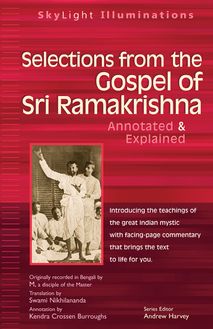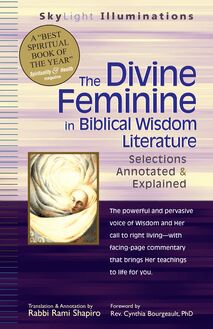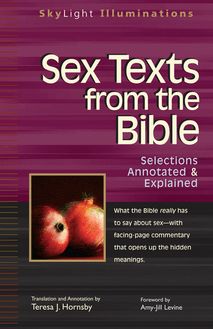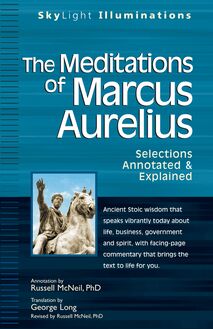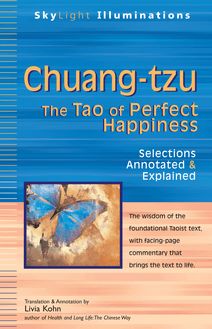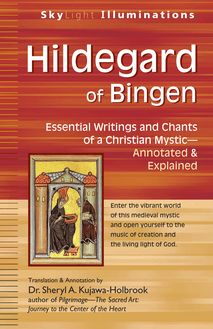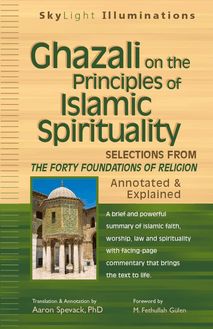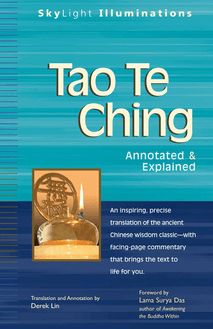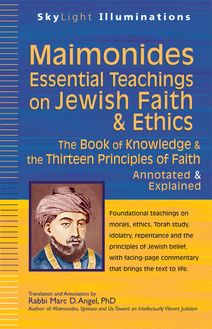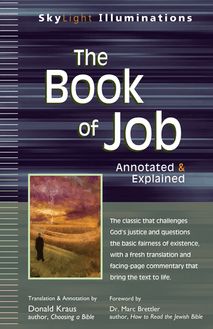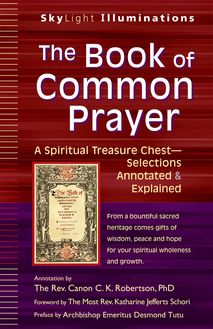Tanya the Masterpiece of Hasidic Wisdom , livre ebook
158
pages
English
Ebooks
2010
Vous pourrez modifier la taille du texte de cet ouvrage
Obtenez un accès à la bibliothèque pour le consulter en ligne En savoir plus
Découvre YouScribe et accède à tout notre catalogue !
Découvre YouScribe et accède à tout notre catalogue !
158
pages
English
Ebooks
2010
Vous pourrez modifier la taille du texte de cet ouvrage
Obtenez un accès à la bibliothèque pour le consulter en ligne En savoir plus
Publié par
Date de parution
01 mars 2010
Nombre de lectures
2
EAN13
9781594733598
Langue
English
The wisdom of Jewish spirituality and mysticism can be a companion for your own spiritual journey.
Tanya, "It Was Taught," is one of the most powerful and potentially transformative books of Jewish wisdom. Written in 1797 by Rabbi Schneur Zalman of Liadi, the founder of Chabad Hasidism, Tanya sets forth the fundamentals of Jewish spirituality and mysticism. While a focus of daily study by tens of thousands of Hasidic Jews, Tanya is little known outside the world of Jewish mysticism. Until now, its kabbalistic terms and esoteric language have made this essential text of Jewish spirituality inaccessible to most readers.
In this engaging volume, Rabbi Rami Shapiro offers a contemporary English translation of key selections of Tanya coupled with commentary designed to clarify and amplify the wisdom it contains. He also outlines the philosophical and spiritual framework on which Tanya is based—God's nonduality; the five dimensions of reality and their corresponding intelligences (body, heart, mind, soul, and spirit); the purpose of mitzvot, the practices of Jewish life, as catalysts to God realization and the hallowing of all life through godliness—to help you understand the selected Tanya translations in a way that enhances your own spiritual development.
Now you can benefit from the wisdom of Tanya even if you have no previous knowledge of Judaism or Hebrew terminology. This SkyLight Illuminations edition presents the core teachings of Tanya, with insightful yet unobtrusive commentary that will deepen your understanding of the soul and how it relates to and manifests the Divine Source from which all life comes, in which all life lives and to which all life returns.
Foreword ix
Preface xvii
Introduction xix
Key Philosophical Ideas xxxiii
Core Spiritual Practices xliii
1. The Five Kinds of Humans 3
2. God, Wisdom, and Your Essential Nature 7
3. The Three Mothers: Wisdom, Reason, and Knowing 11
4. The Three Garments: Thought, Word, and Deed 13
5. Unity Beyond Thought 17
6. The Necessity of Opposites 21
7. Using the Body for Good 23
8. Using the Body for Evil 27
9. The Secret Yearning for the Good 31
10. The Purpose of Transformation 35
11. Redemption from Evil 39
12. Bringing Light into the Darkness 43
13. Internal Conflict 47
14. Becoming an Inbetweener 49
15. Serving God 51
16. The Essential Task 55
17. The Practice of Comprehension 57
18. The Nature of Wisdom 61
19. The Candle of God 65
20. The Unchanging One 69
21. God's Speech 71
22. Other Gods 73
23. Torah and God Are One 75
24. The Interplay of Opposites 77
25. Folly 79
26. The Profit of Sadness 81
27. Passive Restraint 85
28. Distracting Thoughts 89
29. A Dull Heart 93
30. Cultivating Humility 97
31. Working with Sadness 99
32. Love Your Neighbor 103
33. Attaining True Joy 105
34 Generosity 109
35. The Task of Self 111
36. No High or Low in God 113
37. Illuminating the World 117
38. The Necessity of Intent 119
39. Acting without Ulterior Motive 121
40. Revealing the Hidden God 125
41. Love and Awe 129
42. Your Inner "Moses" 133
43. Two Types of Awe 137
44. Higher Grades of Love 139
45. Compassion for God 143
46. Way of Friendship 147
47. Release from Bondage 149
48. The Finite and the Infinite 153
49. The Purpose of Creation 155
50. Run and Return 157
51. The Dwelling of God 161
52. Perceiving the One 163
53. The One Is within You 165
Notes 167
Glossary of Hebrew Terms 168
Books Cited in Tanya 173
Suggestions for Further Reading 177
Publié par
Date de parution
01 mars 2010
EAN13
9781594733598
Langue
English
Selected Books in the SkyLight Illuminations Series
The Art of War-Spirituality for Conflict: Annotated & Explained
Bhagavad Gita: Annotated & Explained
The Book of Mormon: Selections Annotated & Explained
Celtic Christian Spirituality: Essential Writings-Annotated & Explained
Chuang-tzu: The Tao of Perfect Happiness-Selections Annotated & Explained
Confucius, the Analects : The Path of the Sage-Selections Annotated & Explained
Dhammapada: Annotated & Explained
The Divine Feminine in Biblical Wisdom Literature: Selections Annotated & Explained
Ecclesiastes: Annotated & Explained
The End of Days: Essential Selections from Apocalyptic Texts-Annotated & Explained
Ethics of the Sages: Pirke Avot -Annotated & Explained,
Ghazali on the Principles of Islamic Spirituality: Selections from Forty Foundations of Religion -Annotated & Explained
Gnostic Writings on the Soul: Annotated & Explained
The Gospel of Philip: Annotated & Explained
The Gospel of Thomas: Annotated & Explained
Hasidic Tales: Annotated & Explained
The Hebrew Prophets: Selections Annotated & Explained
The Hidden Gospel of Matthew: Annotated & Explained
The Infancy Gospels of Jesus: Apocryphal Tales from the Childhoods of Mary and Jesus-Annotated & Explained
John and Charles Wesley: Selections from Their Writings and Hymns-Annotated & Explained
The Lost Sayings of Jesus: Teachings from Ancient Christian, Jewish, Gnostic, and Islamic Sources-Annotated & Explained
Maimonides-Essential Teachings On Jewish Faith and Ethics: The Book of Knowledge and the Thirteen Principles of Faith-Annotated & Explained
The Meditations of Marcus Aurelius: Selections Annotated & Explained
Native American Stories of the Sacred: Annotated & Explained
Philokalia: The Eastern Christian Spiritual Texts-Annotated & Explained
Proverbs: Annotated & Explained
The Qur an and Sayings of Prophet Muhammad: Selections Annotated & Explained
Rumi and Islam: Selections from His Stories, Poems, and Discourses-Annotated & Explained
The Sacred Writings of Paul: Selections Annotated & Explained
Saint Augustine of Hippo: Selections from Confessions and Other Essential Writings-Annotated & Explained
The Secret Book of John: The Gnostic Gospel-Annotated & Explained
Selections from the Gospel of Sri Ramakrishna: Annotated & Explained
Sex Texts from the Bible: Selections Annotated & Explained
Spiritual Writings on Mary: Annotated & Explained
St. Ignatius Loyola-The Spiritual Writings: Selections Annotated & Explained
Tanya , the Masterpiece of Hasidic Wisdom: Selections Annotated & Explained
Tao Te Ching: Annotated & Explained
The Way of a Pilgrim: The Jesus Prayer Journey-Annotated & Explained
Zohar: Annotated & Explained
Tanya, the Masterpiece of Hasidic Wisdom: Selections Annotated & Explained 2010 Quality Paperback Edition, First Printing Translation, annotation, and introductory material 2010 by Rami Shapiro Foreword 2010 by Zalman M. Schachter-Shalomi
All rights reserved. No part of this book may be reproduced or transmitted in any form or by any means, electronic or mechanical, including photocopying, recording, or by any information storage and retrieval system, without permission in writing from the publisher.
For information regarding permission to reprint material from this book, please mail or fax your request in writing to SkyLight Paths Publishing, Permissions Department, at the address / fax number listed below, or e-mail your request to permissions@skylightpaths.com.
Library of Congress Cataloging-in-Publication Data Shneur Zalman, of Lyady, 1745-1813. [Likute amarim. English. Selections]
Tanya, the masterpiece of Hasidic wisdom : selections annotated & explained / translation & annotation by Rami Shapiro ; foreword by Zalman M. Schachter-Shalomi. -2010 quality paperback ed. p. cm. - (Skylight illuminations series) Includes bibliographical references and index.
ISBN 978-1-59473-275-1 (quality pbk. original : alk. paper) 1. Shneur Zalman, of Lyady, 1745-1813. Likute amarim. 2. Hasidism. 3. Habad. I. Shapiro, Rami M. II. Title.
BM198.2.S56213 2010
296.8'332-dc22
2009054330
10 9 8 7 6 5 4 3 2 1
Manufactured in the United States of America
Printed on recycled paper.
Cover design: Walter C. Bumford III Cover art: istockphoto.com / peter zelei
SkyLight Paths Publishing is creating a place where people of different spiritual traditions come together for challenge and inspiration, a place where we can help each other understand the mystery that lies at the heart of our existence.
SkyLight Paths sees both believers and seekers as a community that increasingly transcends traditional boundaries of religion and denomination-people wanting to learn from each other, walking together, finding the way .
SkyLight Paths, Walking Together, Finding the Way, and colophon are trademarks of LongHill Partners, Inc., registered in the U.S. Patent and Trademark Office.
Walking Together, Finding the Way Published by SkyLight Paths Publishing A Division of LongHill Partners, Inc. Sunset Farm Offices, Route 4, P.O. Box 237 Woodstock, VT 05091 Tel: (802) 457-4000 Fax: (802) 457-4004 www.skylightpaths.com
Contents
Foreword
Preface
Introduction
Key Philosophical Ideas
Core Spiritual Practices
1. The Five Kinds of Humans
2. God, Wisdom, and Your Essential Nature
3. The Three Mothers: Wisdom, Reason, and Knowing
4. The Three Garments: Thought, Word, and Deed
5. Unity Beyond Thought
6. The Necessity of Opposites
7. Using the Body for Good
8. Using the Body for Evil
9. The Secret Yearning for the Good
10. The Purpose of Transformation
11. Redemption from Evil
12. Bringing Light into the Darkness
13. Internal Conflict
14. Becoming an Inbetweener
15. Serving God
16. The Essential Task
17. The Practice of Comprehension
18. The Nature of Wisdom
19. The Candle of God
20. The Unchanging One
21. God s Speech
22. Other Gods
23. Torah and God Are One
24. The Interplay of Opposites
25. Folly
26. The Profit of Sadness
27. Passive Restraint
28. Distracting Thoughts
29. A Dull Heart
30. Cultivating Humility
31. Working with Sadness
32. Love Your Neighbor
33. Attaining True Joy
34. Generosity
35. The Task of Self
36. No High or Low in God
37. Illuminating the World
38. The Necessity of Intent
39. Acting without Ulterior Motive
40. Revealing the Hidden God
41. Love and Awe
42. Your Inner Moses
43. Two Types of Awe
44. Higher Grades of Love
45. Compassion for God
46. Way of Friendship
47. Release from Bondage
48. The Finite and the Infinite
49. The Purpose of Creation
50. Run and Return
51. The Dwelling of God
52. Perceiving the One
53. The One Is within You
Notes
Glossary of Hebrew Terms
Books Cited in Tanya
Suggestions for Further Reading
About SkyLight Paths
Copyright
Foreword
Rabbi Zalman M. Schachter-Shalomi
Many a Jewish person has said that if it hadn t been for Tanya they would not have been able to remain committed to our tradition. This is also true for me. This is why I m so delighted that Rabbi Rami Shapiro has prepared this rendition of the book. There is much in the book, even in the Chabad authorized translation of Tanya , that is inspiring. Yet without filtering and rendering some of the material, the raw content as it stands may be off-putting for some people. What Rami brings to the task is an integral, dare I say it, Taoist lens, an approach that he has used in some of his other brilliant renditions of classical Jewish texts.
For me, too, Tanya was the faith saver, a spiritual lifesaver. What I intuited inside its pages I could not find in the schools or synagogues I attended as I grew up in Vienna, Austria. After the Anschluss my family and I crossed the border illegally to Belgium where I met some people who were students of Tanya . When I sat with them, singing and praying, I was able to attune to their contemplative and feeling space, which afforded me a sense of signification that nourished a longing for the light that I experienced.
Later on, when I was doing my graduate work in pastoral psychology and psychology of religion, I was able to appreciate what the psychological contributions made by Reb Schneur Zalman and Tanya were all about.
The most far-reaching psychological contribution Rabbi Schneur Zalman made was his concept of the beinoni . The word itself is as difficult to translate as is the concept. Some translators define it as average person, but this rendering is a sociological fiction. Rabbi Schneur Zalman intended no such meaning. He understood beinoni as a term for the individual who straddled somewhere between tzaddik (saint) and rasha (wicked person). He therefore begins his teaching by defining tzaddik and rasha .
Tzaddik
Rabbi Schneur Zalman was of the opinion that tzaddik was a qualitative term, not a behavioral one. Were it only behavioral, tzaddik would merely have meant someone who behaves righteously more often than not, and, at the deepest level, might sometimes also desire that which is not of God s will. He therefore spoke of absolute tzaddik and conditional tzaddik. He treats rasha , which we will explain later, in the same manner.
The absolute tzaddik , in the qualitative sense, is a person who has completely mortified her or his demons so that there is not even so much as an unconscious inclination to invest energy-libido-toward evil. The absolute tzaddik cannot even attempt such an inclination since all fascination for evil has been canceled. The tzaddik s disdain for evil, however, is not at all fanatical as it is quiet and existential.
The conditional tzaddik, however, while not involved behaviorally in evil or inclined to invest libido toward it in any way, is nonetheless vulnerable to the potential for evil. There may be abhorrence for evil, but it is not absolute, and the fascination for it still lingers on at some unconscious plateau.
Yet, in
